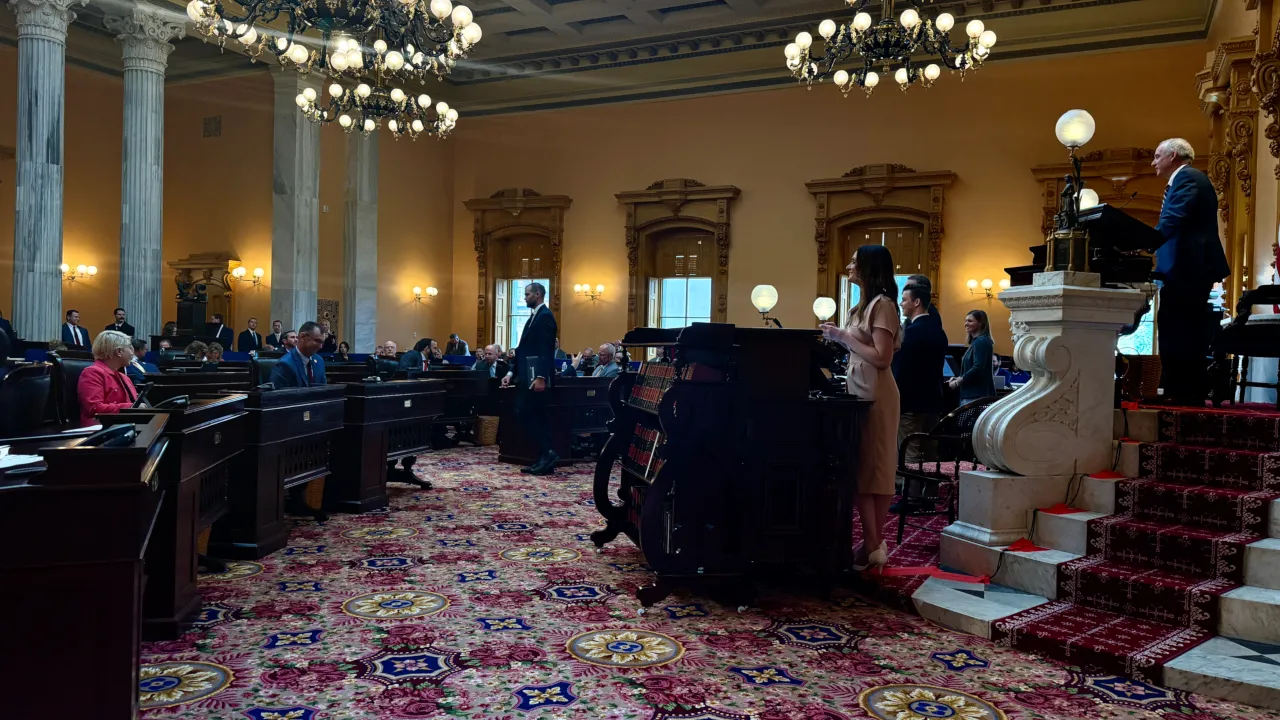In an unexpected turn of events, the Republican majority in Ohio's House of Representatives rescinded one of Governor Mike DeWine's key vetoes aimed at restricting school levies, sparking outrage among educators and activists who warn of catastrophic consequences for local schools. The decision, made on Monday, became another episode in the ongoing battle for property tax reform in the state, exposing deep divisions among lawmakers, local communities, and education advocates.
The veto repeal, led by House Speaker Matt Huffman, a Republican from Lima, overturned a provision in the two-year state budget that allowed school districts to put emergency or replacement taxes up for a vote, as well as require increases in existing taxes. Supporters of the repeal, including State Representative David Thomas of Jefferson, argue that this decision will ease the tax burden on property owners by removing "complicated tools" that enable unlimited tax hikes.
"We must stop practices that force property owners to bear an ever-increasing burden without their consent," — said Thomas, whose passionate speech in the House highlighted sentiments among Republicans seeking to reform the tax system.
However, for educators, this decision undermines the ability of schools to provide quality education. Cleveland Heights School Board member Dean Heinz was emotional in commenting on the implications: "This effectively excludes local voters from the decision-making process. We face the prospect of mass layoffs — from programs to teaching staff and even the closing of school buildings."
Tensions in Communities and a Partial Resolution
The veto repeal concerned only one of three provisions Huffman initially intended to challenge. Provision number 66 eliminated restrictions on property taxes for school districts but did not affect other proposals that could allow districts to reallocate funds or alter the state funding formula. According to Huffman, the lack of votes to block other vetoes was caused by "misinformation" circulating among legislators, as well as the absence of several key House members.
"I hope that in the fall we will revisit these issues and veto the remaining provisions," — Huffman said, acknowledging that the current outcome is only a partial step toward broader reform.
Meanwhile, activists advocating for lower property taxes remain disappointed. Betty Blackmar, leader of the coalition "Citizens for Property Tax Reform," called the House’s decision "cosmetic" and not addressing fundamental issues. "We cannot tolerate doubling or tripling property taxes without real relief," — she said. Her colleague, Brian Masi, added: "Lawmakers returned from recess to achieve such a minimal result. It does not solve the problem of people losing their homes due to unfair taxation."
Broader Implications for Education and Politics
The House’s decision still requires Senate approval before it can become law. However, even if successful, it is unlikely to placate either reform advocates or education defenders. For the former, it does not guarantee significant tax reductions, and for the latter, it threatens the stability of school funding. Educators fear that losing the ability to approve emergency levies will force many districts to cut programs, lay off teachers, and even close schools.
This move also highlights broader political currents in Ohio, where the Republican majority increasingly uses its power to push reforms that, according to them, protect taxpayers but are criticized for lack of transparency and community engagement. The veto repeal has become a rare example of lawmakers opposing a governor from their own party, indicating internal divisions within Ohio’s Republican Party.
For Governor DeWine, whose vetoes aimed to preserve flexibility for school districts, this decision is a setback. His administration has not yet commented on recent developments, but sources close to the governor suggest he may attempt to influence the Senate to prevent the final veto override.
What’s Next?
While the Senate prepares to consider this matter, Ohio communities remain tense. For many, like Heinz, the future of education looks bleak. "We are losing tools that allow us to meet our students’ needs," — he said. Others, like Blackmar and Masi, continue to fight for a fairer tax system.
In a state where political battles often determine the fate of local communities, this confrontation between taxpayers and the education system is just the latest act in a saga that is far from over.


